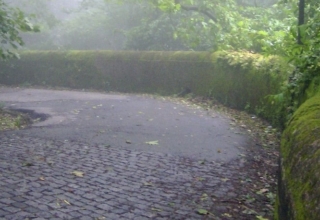
The numinous experience for Jung can be evoked by an exceptionally beautiful sunset or by the overwhelming prospect of a loved one’s impending death. It can be evoked by a particularly powerful interpersonal relationship—one filled with lust, love, compassion or hatred. More generally, Jung seems to be speaking to the gradual evolution of human consciousness when writing about the numinostic experience. As one of his protégés, Erich Neumann (1954), has noted, human consciousness (replicating the evolution of organic life) begins in an undifferentiated state (which Neumann calls the “uroborous”). This state is represented in many symbolic forms, ranging from the many images of chaos (floods, wind, or ocean) to the more stylized image of the snake that is circling around to begin devouring its own tail. Jungians suggest that the experience of the numinous is composed of both the primitive, undifferentiated elements (the “uroborous”) and the much more complex forms of high-art. As in the avalanche, the high-art is recruited by the dynamic and compelling low-art of primitive consciousness.
Jung suggests that the numinous experience is quite frightening and often not welcomed. He proposes that we build societal norms and institutional structures to protect us from the numinous. Jung nominates the Catholic Church as an institution that has provided protection from the numinous, though its rituals and priestly roles. Jung (1938, pp. 22-23) suggests in Psychology and Religion that the Protestant revolution shattered this protection and left those who adhere to a Protestant faith fully exposed to the powerful presence of the numinous:
Protestantism, having pulled down many a wall which had been carefully erected by the [Catholic] church, began immediately to experience the disintegrating and schismatic effect of individual revelation. As soon as the dogmatic fence was broken down and as soon as the ritual had lost the authority of its efficiency, man was confronted with an inner experience, without the protection and the guidance of a dogma and a ritual which are the unparalleled quintessence of Christian as well as of pagan religious experience. Protestantism has, in the main, lost all the finer shades of the dogma: the mass, the confession, the greater part of the liturgy and the sacrificial importance of priesthood.
Without this religious institutional protection, Protestants have looked elsewhere for a barrier that can be erected between self and numinous. In Psychology and Religion (based on the pre-World War II 1937 Terry Lectures), Jung suggests that the Nazi regime in Germany may powerfully and horribly exemplify the substitution of a secular institution for a religious institution in blocking the emergence of numinous experiences. Whether or not Jung is correct in linking the Third Reich and ultimately the Holocaust to the threat of numinous experiences, we certainly can acknowledge and respect the power of these experiences.
Download Article 1K Club
















